Stepping into an emergency room abroad for the first time felt like walking onto a stage where the script was still being written. I thought my years of medical training and experience back home had prepared me for anything. But the reality of working in a foreign hospital—different systems, different people, and a different rhythm—was full of surprises. Here are five things that stood out to me in my first ER shifts abroad.
1. The Language Barrier Isn’t Just About Words
On my very first shift, I faced something I had underestimated: language. It wasn’t only about patients speaking a different language—it was about body language, cultural nuances, and even medical shorthand that didn’t translate.
I remember a patient who tried to explain chest pain with hand gestures and fragmented English. I had to rely on intuition, a translator app, and the help of a nurse who spoke the local language. It made me realize that good communication in medicine isn’t just about vocabulary. It’s about patience, listening beyond words, and sometimes learning to read between the lines.
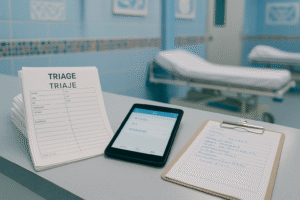
2. Same Emergencies, New Perspectives
One of the most eye-opening parts of working abroad was realizing that while the emergencies are the same—heart attacks, strokes, traumas—the way they are approached can be quite different.
On my early shifts, I noticed that some steps in patient care were arranged differently from what I was used to. At first, it surprised me, but soon I realized it was about adapting to local resources and workflows. What mattered most wasn’t the exact order of the steps—it was that the patient still received safe and effective care.
Seeing another healthcare system in action gave me fresh perspectives. It reminded me that medicine isn’t rigid; it’s flexible, and there are many paths to the same goal of healing.
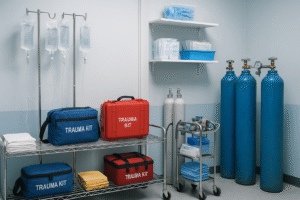
3. Finding My Place in a New Team
Emergency medicine thrives on teamwork, and joining a new team abroad felt like stepping into an orchestra already in full swing. The rhythm was different, but that didn’t make it any less effective.
During a trauma case, I noticed how the team communicated with subtle cues and a quiet confidence that was different from what I was used to. Instead of jumping in with instructions, I had to listen, observe, and align myself with their flow.
That experience taught me that teamwork isn’t about imposing your style—it’s about blending your strengths with others’. Over time, I found that adapting to the team’s unique style not only helped patients but also deepened my respect for the diverse ways healthcare professionals around the world come together in critical moments.
4. Patients Teach You More Than Textbooks Do
One of the biggest surprises was how much I learned directly from patients. Some illnesses presented in ways I hadn’t seen back home—partly because of genetics, climate, and lifestyle differences.
I’ll never forget the elderly fisherman with dehydration so severe that his skin felt like parchment. His case wasn’t just about fluids and electrolytes. It was about understanding how long hours under the sun, poor access to clean water, and cultural habits all tied into his condition. Patients abroad don’t just bring their illness to the ER; they bring their world with them.
5. You Grow Faster Than You Realize
At the end of my first week, I looked back at the shifts and realized something powerful: the struggles—the misunderstandings, the awkward silences, the protocol clashes—had already made me sharper and more adaptable.
Every challenge felt overwhelming in the moment, but each one became a stepping stone. By learning how to ask for help, how to pause before reacting, and how to adapt on the fly, I found myself growing into a stronger, more flexible version of the doctor I had been before.
Final Thoughts
My first ER shifts abroad weren’t easy. They were messy, humbling, and sometimes exhausting. But they were also full of lessons I could never have learned if I stayed in the comfort of my home country.
If you’re a doctor, nurse, or healthcare worker considering a career abroad, know this: the surprises will come, and they won’t all be pleasant. But if you keep an open mind and a willing heart, those surprises will shape you into a better professional and a better person.
✨ Working in a foreign ER isn’t just about treating emergencies—it’s about discovering resilience, connection, and the universality of care.




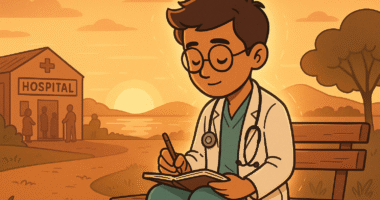
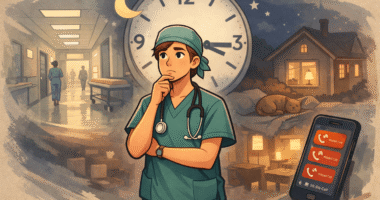


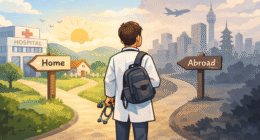

3 comments
Thanks
Thanks for sharing Sir
Done 🍀